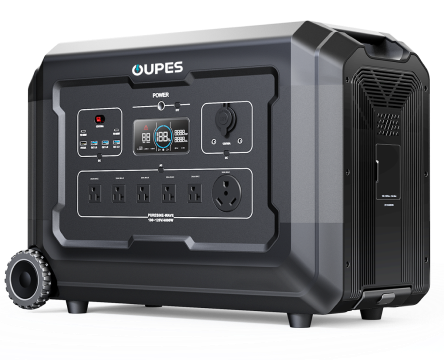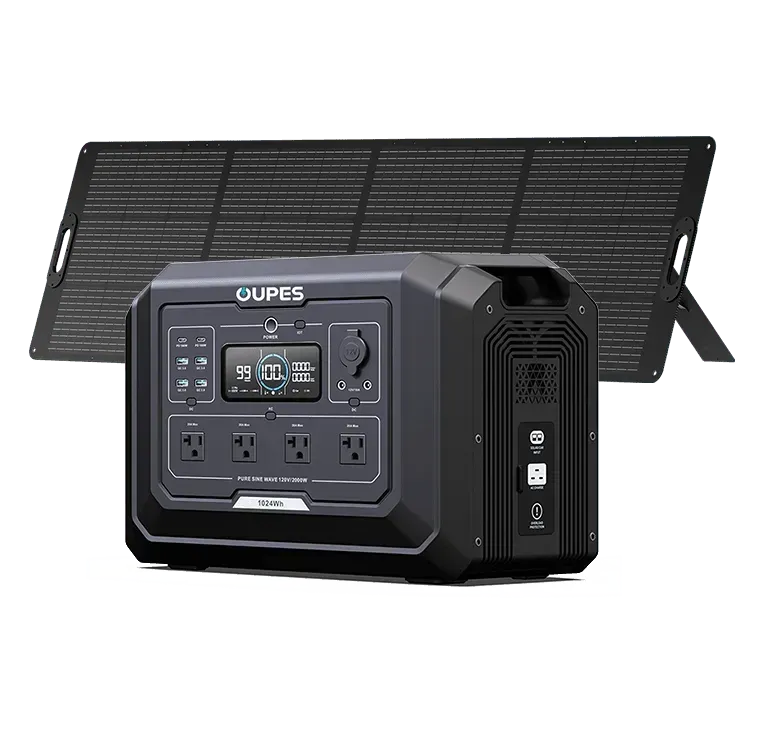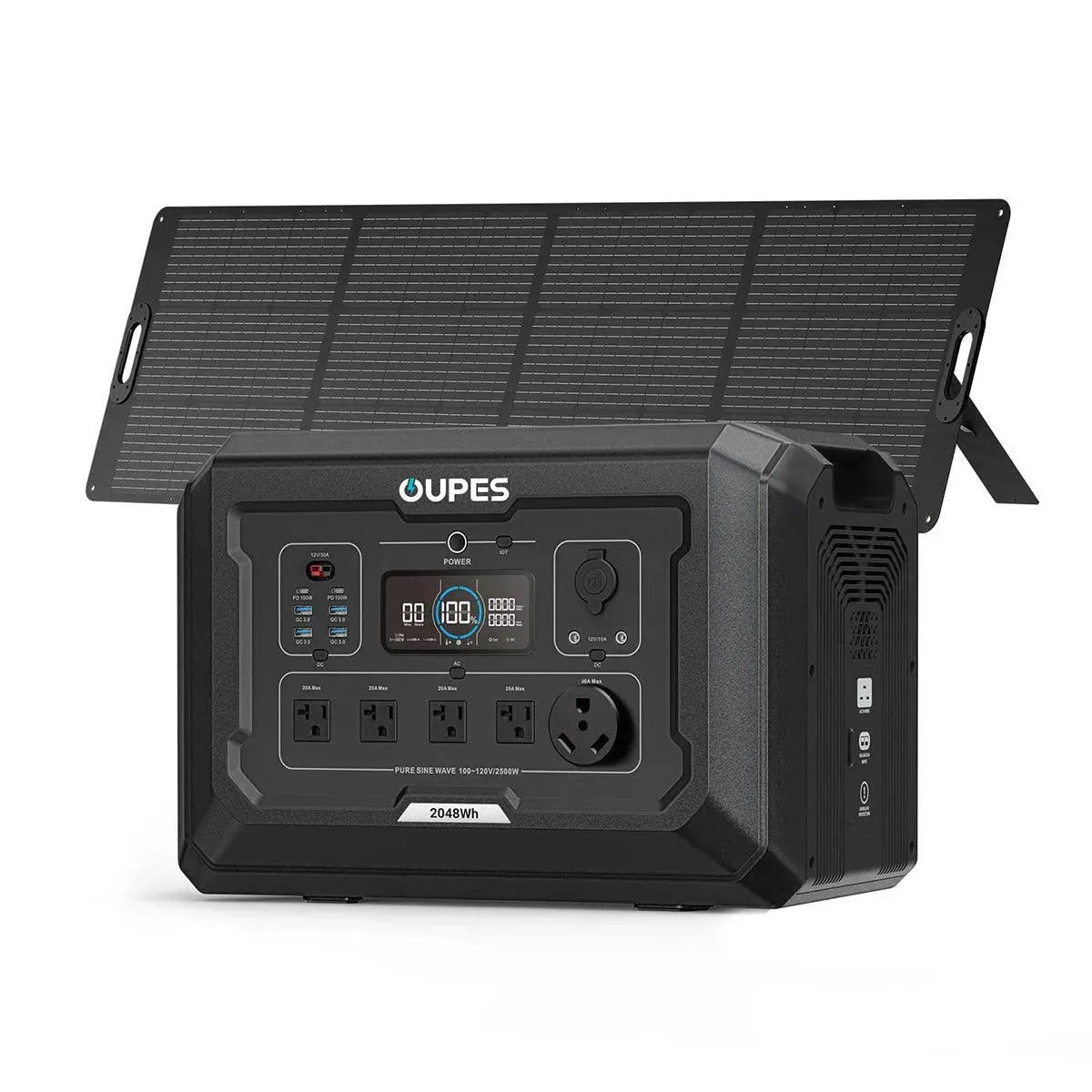Gas generators and portable power stations serve the same purpose— to provide electricity when required.
Yet they each have their peculiar functions, pros, and cons.
As a result, you may find yourself at a crossroads in deciding which is right for you between power stations and traditional generators.
In this piece, we explored the two options, citing the relevant features and important considerations you should make before choosing.
Gas generators versus portable power stations: The core working principles
Before we delve deeper into the features and considerations that should shape your decision, it is essential to understand the primary nature of these power solutions.
Gas generators operate based on the working principle of traditional generators by converting fuels to energy; they have been well established as power solutions to generate energy for high-wattage appliances.
In contrast, portable power stations utilize other means than fuel to generate energy. This often consists of rechargeable batteries that can be recharged using solar power or other non-fuel-based energy sources.
Now, let's look at key considerations and their distinguishing features before opting for gas generators or portable power stations.
Gas generators vs portable power station: A face-off

1. Functionality
Gas generators, without a doubt, are effective in generating power; they are touted for their ability to handle high-power-consuming appliances. Gas generators typically provide about 5000 to 10000 Watts per hour and are ideal for people who require a larger power output.
Portable power stations deliver a great deal of power supply to handle a variety of appliances, but these are most suited for low-wattage appliances. They can be used for charging household appliances and electronic devices and to make power accessible outdoors. For instance, the OUPES 1800 Portable Power Station has 1488Wh Capacity and can power 90% of home appliances.Its weight of 33 lbs makes it easy to carry, making it an ideal companion for outdoor activities.
2. Portability
This is a key consideration to make, especially if you have concerns about space or you need to utilize power outdoors.
For essential activities, outdoor events, or adventures, portable power stations exemplify compactness. They are designed to be lightweight and can be easily carried about.
This makes it very handy for emergencies and quite appealing to produce power for essential duties outdoors.
Gas generators pale in comparison to portable power stations in this aspect as they are typically bulky, occupy more space, and weigh more.
3. Maintenance requirements
Maintenance can be demanding regarding cost and energy, which is a vital feature to consider before choosing.
For gas generators, there is a requirement to replace parts and change oils amidst other maintenance practices periodically.
However, the design of the portable power station differs. The features are compactly built-in with fewer components and make maintenance requirements less demanding.
4. Cost
The cost of either of these power solutions is highly variable and dependent on several factors like brand, capacity, and efficiency.
The cost of portable power stations is based on the generating capacity. Less power-generating capacity costs less than high power generation. Similarly, the cost of gas generators depends on their features, efficiency, and capacity.
However, you should know that gas generators incur an extra cost for fuel, which portable power stations do not need. While expense is a good consideration, endeavor to look beyond the price tag and ensure that you are getting the worth for your bucks.
5. Environmental friendliness
Portable power stations conform with the modern-day goals and objectives to reduce greenhouse gas emissions by welding green energy sources like solar power. They do not constitute any form of pollution and are environmentally friendly.
Gas generators, on the other hand, have fuels as their lifeblood and are prone to the emission of environmentally harmful gasses. The high power activities of the engine and other components make it a hub of noise, generating higher noise levels than the portable power station.
The choice of a generator depends on your preference regarding power output, needs, and budget.
To further help your choices, here are some questions to consider.
- What kind of activities and appliances do you need to power?
- Can you afford a regular and affordable fuel supply?
- How comfortable are you with noise levels?
- Do you desire portability?
When to opt for gas generators
Gas generators are ideal when you require a greater power output to power larger devices.
They are also ideal when you experience prolonged outages or need to keep high energy-consuming appliances powered for an extended period. While they are good options, consider these pros and cons to guide your decision.
Pros
- Delivers a higher power output.
- Ideal for extended use during long periods of a power outage.
- Relatively cost-effective at initial purchase.
- Uninterrupted provision of power if fuel is available
- Serves to power heavy-duty and energy-intensive appliances.
Cons
- Bulky and heavy, which limits mobility .
- Generate emissions like carbon monoxide, which is not environmentally friendly.
- An additional cost of providing fuel to run the generators.
- High maintenance requirements.
- Generates lots of noise when in use.
How long can a gas generator run continuously

The running time of gas generators depends on the fuel tank capacity and the engine's fuel efficiency.
So, your gas generators will run as long as fuel is available.
When to opt for portable power stations

Portable power stations are renowned for their versatility; they are ideal for camping, thanksgiving ceremonies, hiking, trips to the beach, and even medical interventions.
When there is a power outage, a portable power station is a good replacement and keeps your essential device charged. It is better suited when you do not need a large power output.
For instance, the Oupes 2400W can sustainably power 95% of regular household appliances for a long time and can be recharged in about five ways to relieve you of the pressure of having just a charging outlet. 14 Outputs For Multiple Devices, it's an excellent choice whether it's for camping, RVing, or as a backup power source during a power outage.
Power stations are safer with no fume production and are ideal for people who don't want to worry about regular maintenance and other complexities with gas generators.
Consider these pros and cons of portable power stations.
Pros
- No noise generation while running.
- No gas emissions fumes.
- No fuel requirement– less operational cost.
- Rechargeable.
- Portable and highly mobile.
Cons
- Relatively more expensive than gas generators.
- Generates a limited power output.
- Some models may have limited charging outlets.
- Runtime can be interrupted if not recharged.
- It may not sustain heavy-duty or high-wattage appliances.
How long can a portable power station run continuously

The runtime of a portable power station depends on the battery capacity, the consumption level of the connected devices, and the recharging methods available.
A portable power station such as the OUPES Mega 5 Home Backup & Portable Power Station can run you for as long as you intend. It has a large capacity of 5040Wh, allowing you to increase its capacity to a whopping 10.08kWh with our B5 expansion module. With 16 outputs available, you can simultaneously power multiple devices, making it the ideal choice for both everyday use and emergencies.
You can recharge when the energy depletes, even while in use. This makes it sustainable for extended use.
Conclusion
If you need something portable with low power output, go with a portable power station such as OUPES 1200 Portable Power Station, or OUPES 600 Portable Power Station. If, however, you need a higher output with continuous power, a generator is the best choice. You may consider going for solar generators like Oupes Mega 5 as well.
At Oupes, we offer premium quality products, including portable power stations and solar power solutions as backup electricity sources.
Contact us today to get something unique for your energy requirements.

































Leave a comment
This site is protected by hCaptcha and the hCaptcha Privacy Policy and Terms of Service apply.